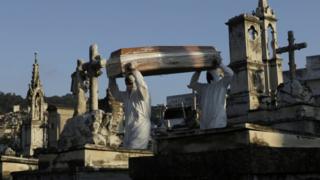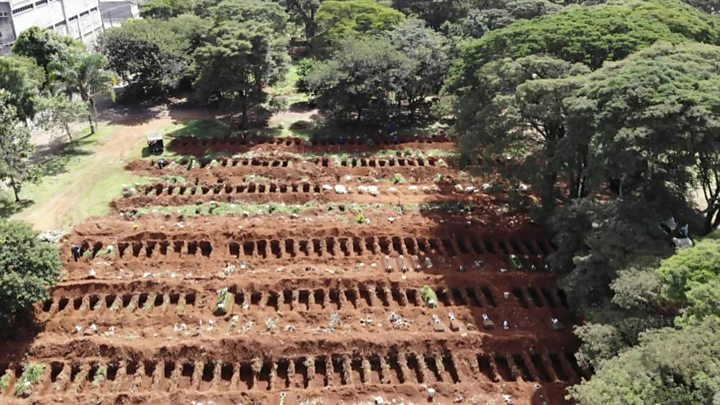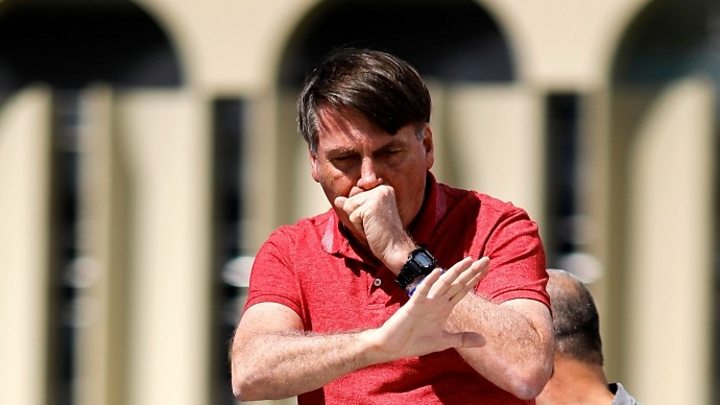This website uses cookies so that we can provide you with the best user experience possible. Cookie information is stored in your browser and performs functions such as recognising you when you return to our website and helping our team to understand which sections of the website you find most interesting and useful.
 Image copyright Reuters
Image copyright ReutersBrazil has become the country with the third-highest number of confirmed coronavirus infections in the world, after registering a total of more than 250,000 cases.
Only the US and Russia have recorded more infections.
Experts say insufficient testing might mean that the real figure in Brazil could be 15 times higher.
The country's far-right president, Jair Bolsonaro, has dismissed the risks and compared Covid-19 to "a little flu".
His handling of the outbreak - which has included calls for lockdowns imposed by state governors to be lifted - has led to criticism and the resignation of Health Minister Nelson Teich last week.
Mr Teich's predecessor, Luiz Mandetta, was sacked by President Bolsonaro after the two men disagreed over social distancing measures.
But Mr Bolsonaro's focus on minimising economic disruption has been welcomed by many. Supporters who have organised anti-lockdown rallies, some of which the president attended.
How bad is the situation in Brazil?
Brazil now has more than a quarter of a million confirmed cases. More than 16,000 Covid-19 patients have died, the sixth-highest death toll in the world.
The health system of its largest city, São Paulo, could collapse within two weeks, Mayor Bruno Covas has warned.
The city has a population of about 12 million, and official say show most residents are ignoring social distancing rules. More than 3,000 people have died with the virus in São Paulo.
But it is not only urban centres that have been badly hit. Amazonas state had almost 21,000 confirmed cases as of Monday.

Media playback is unsupported on your device
Health services in Manaus, the state capital, have been overwhelmed and mass graves are being used to bury the dead.
How is President Bolsonaro handling the crisis?
Mr Bolsonaro continues to oppose lockdown measures, arguing that they will wreck the economy.
In March he made a speech calling on mayors and governors to roll back restrictions: "Our lives have to go on. Jobs must be kept. We must get back to normal."

Media playback is unsupported on your device
The president described the closures of businesses and schools, together with restrictions on public transport, as "scorched-earth" policies.
Despite the rapidly rising infection rate, Mr Bolsonaro argued that most people, including himself, had nothing to fear from the virus.
"With my history as an athlete, if I were infected with the virus I would have no reason to worry. I would feel nothing, or it would be at most just a little flu," he said.
- THE R NUMBER: What it means and why it matters
- GLOBAL SPREAD:
- RECOVERY:
- A SIMPLE GUIDE:



 Africana55 Radio
Africana55 Radio 
